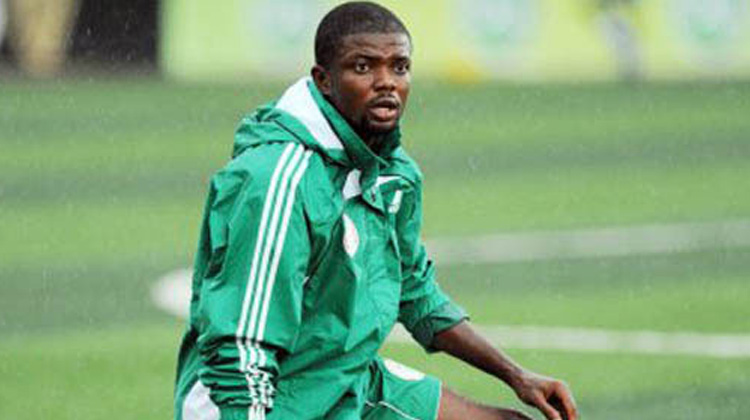Kingsley Udoh, a notable defender for Nigeria, is currently grappling with a profound sense of loss, particularly following the disappearance of his FIFA U-17 World Cup gold medal. The 33-year-old athlete, who was a vital part of the Nigerian Golden Eaglets team that triumphed in the 2007 FIFA U-17 World Cup held in South Korea, has openly expressed the impact that this loss has had on his life. The gold medal, which was a cherished possession of his late father, has not been seen since his father’s passing. For Udoh, this medal represented not just a remarkable achievement in his football career but also a connection to a beloved family member.
In a candid interview on Brila FM, Udoh shared his struggles with both emotional and financial difficulties. He articulated how losing the medal has compounded an already challenging situation, making it difficult for him to meet even basic needs such as feeding himself. Furthermore, he highlighted how these struggles have hindered his aspirations to further his coaching education, revealing a sense of frustration and desperation. It’s clear that the gold medal symbolized more than just a victory on the field; it also embodied hope for a better future and personal growth through career advancement.
Udoh’s journey in football is noteworthy, having represented Nigeria at various levels and contributed significantly to domestic leagues. He has had successful spells with well-known clubs such as Akwa United, Heartland, Kano Pillars, and Sunshine Stars. Kicking off his career in youth football, he was notably part of the Flying Eagles, which clinched the African U-17 Championship in 2007, just before their World Cup success. Udoh’s career achievements solidify his reputation as a seasoned player who has dedicated himself to the sport and his country. Nonetheless, despite these accomplishments, life after professional football has proven to be challenging, particularly regarding financial stability.
The emotional toll of losing both his cherished medal and his father has created a deep sense of despondency within Udoh. The absence of the medal has left him feeling disconnected from a significant part of his legacy as an athlete. In the world of sports, medals often serve as a tangible representation of hard work, dedication, and pride, and for Udoh, the lost gold medal is a constant reminder of his struggles as well as a symbol of his past triumphs. As he continues to grapple with this reality, the prospect of moving forward and focusing on personal development becomes increasingly elusive.
Moreover, Udoh’s situation underscores a broader issue faced by many athletes who may struggle post-retirement or after achieving significant milestones. The transition from professional sports to everyday life can be daunting, often leaving former athletes without the support systems they once relied upon. Faced with financial difficulties and limited opportunities for career advancement, Udoh’s story resonates with many who have found themselves in similarly precarious positions. His desire to attend a coaching course highlights the gap between aspiring to advance in one’s career and the financial constraints that can impede such goals.
In conclusion, Kingsley Udoh’s heartfelt story serves as a reminder of the challenges that athletes can encounter, particularly in the aftermath of significant achievements and personal losses. His reflection on the loss of his FIFA U-17 World Cup gold medal reveals not only his struggles but also the emotional burden that can accompany life after sports. As he navigates this difficult chapter, Udoh’s journey illuminates the importance of support for former athletes, emphasizing the need for systems that can provide financial stability and opportunities for growth. Ultimately, Udoh’s resilience in the face of adversity stands as a testament to his enduring spirit as an athlete.


